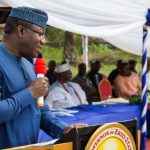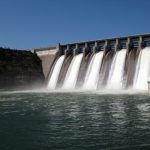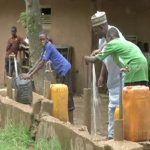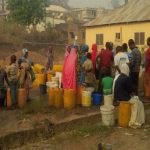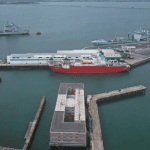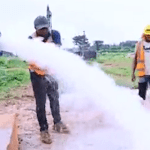The Niger State Government has said it plans to connect 14,000 new lines for water supply, which will increase the state’s revenue generating capacity to between N120 and N150 million per month once they are connected and metered.
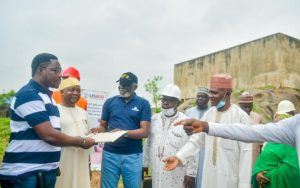
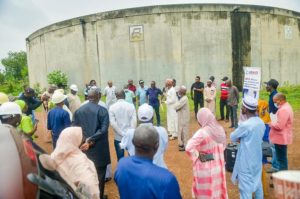
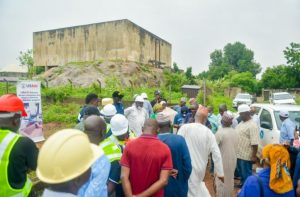
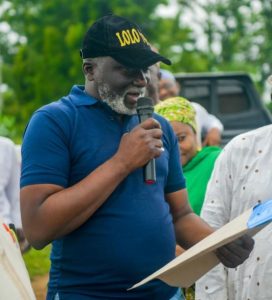
Contractors and consultants who would handle the United States Agency for International Development (USAID) financed project in the state have been given the project documentation.
According to Alhaji Yusuf Suleiman, State Commissioner for Water Resources and Dam Development, the project is divided into two phases that would be finished in three months.
The first phase entails disconnecting 2,200 service lines from the main ment, which is the tank that supplies water to the reservoir and is connected to service lines, individual and company lines, while the second phase entails laying a total of 9 kilometers of new water pipes on the Shiroro line.
On completion, the project would ensure that areas getting irregular water supply and those without would have constant supply while leakages of pipes would be entirely eliminated.
So far, areas such as Bosso Estate, Dusten Kuran Gwari and Hausa, Shanu Village, Okada Road, Gbaiko, and Unguwan Rahma will begin to receive regular supplies, rather than the once-a-week supply that some of them currently receive.
The Niger State Government has said it plans to connect 14,000 new lines for water supply, which will increase the state’s revenue generating capacity to between N120 and N150 million per month once they are connected and metered.




Contractors and consultants who would handle the United States Agency for International Development (USAID) financed project in the state have been given the project documentation.
According to Alhaji Yusuf Suleiman, State Commissioner for Water Resources and Dam Development, the project is divided into two phases that would be finished in three months.
The first phase entails disconnecting 2,200 service lines from the main ment, which is the tank that supplies water to the reservoir and is connected to service lines, individual and company lines, while the second phase entails laying a total of 9 kilometers of new water pipes on the Shiroro line.
On completion, the project would ensure that areas getting irregular water supply and those without would have constant supply while leakages of pipes would be entirely eliminated.
So far, areas such as Bosso Estate, Dusten Kuran Gwari and Hausa, Shanu Village, Okada Road, Gbaiko, and Unguwan Rahma will begin to receive regular supplies, rather than the once-a-week supply that some of them currently receive.
The Niger State Government has said it plans to connect 14,000 new lines for water supply, which will increase the state’s revenue generating capacity to between N120 and N150 million per month once they are connected and metered.




Contractors and consultants who would handle the United States Agency for International Development (USAID) financed project in the state have been given the project documentation.
According to Alhaji Yusuf Suleiman, State Commissioner for Water Resources and Dam Development, the project is divided into two phases that would be finished in three months.
The first phase entails disconnecting 2,200 service lines from the main ment, which is the tank that supplies water to the reservoir and is connected to service lines, individual and company lines, while the second phase entails laying a total of 9 kilometers of new water pipes on the Shiroro line.
On completion, the project would ensure that areas getting irregular water supply and those without would have constant supply while leakages of pipes would be entirely eliminated.
So far, areas such as Bosso Estate, Dusten Kuran Gwari and Hausa, Shanu Village, Okada Road, Gbaiko, and Unguwan Rahma will begin to receive regular supplies, rather than the once-a-week supply that some of them currently receive.
The Niger State Government has said it plans to connect 14,000 new lines for water supply, which will increase the state’s revenue generating capacity to between N120 and N150 million per month once they are connected and metered.




Contractors and consultants who would handle the United States Agency for International Development (USAID) financed project in the state have been given the project documentation.
According to Alhaji Yusuf Suleiman, State Commissioner for Water Resources and Dam Development, the project is divided into two phases that would be finished in three months.
The first phase entails disconnecting 2,200 service lines from the main ment, which is the tank that supplies water to the reservoir and is connected to service lines, individual and company lines, while the second phase entails laying a total of 9 kilometers of new water pipes on the Shiroro line.
On completion, the project would ensure that areas getting irregular water supply and those without would have constant supply while leakages of pipes would be entirely eliminated.
So far, areas such as Bosso Estate, Dusten Kuran Gwari and Hausa, Shanu Village, Okada Road, Gbaiko, and Unguwan Rahma will begin to receive regular supplies, rather than the once-a-week supply that some of them currently receive.
The Niger State Government has said it plans to connect 14,000 new lines for water supply, which will increase the state’s revenue generating capacity to between N120 and N150 million per month once they are connected and metered.




Contractors and consultants who would handle the United States Agency for International Development (USAID) financed project in the state have been given the project documentation.
According to Alhaji Yusuf Suleiman, State Commissioner for Water Resources and Dam Development, the project is divided into two phases that would be finished in three months.
The first phase entails disconnecting 2,200 service lines from the main ment, which is the tank that supplies water to the reservoir and is connected to service lines, individual and company lines, while the second phase entails laying a total of 9 kilometers of new water pipes on the Shiroro line.
On completion, the project would ensure that areas getting irregular water supply and those without would have constant supply while leakages of pipes would be entirely eliminated.
So far, areas such as Bosso Estate, Dusten Kuran Gwari and Hausa, Shanu Village, Okada Road, Gbaiko, and Unguwan Rahma will begin to receive regular supplies, rather than the once-a-week supply that some of them currently receive.
The Niger State Government has said it plans to connect 14,000 new lines for water supply, which will increase the state’s revenue generating capacity to between N120 and N150 million per month once they are connected and metered.




Contractors and consultants who would handle the United States Agency for International Development (USAID) financed project in the state have been given the project documentation.
According to Alhaji Yusuf Suleiman, State Commissioner for Water Resources and Dam Development, the project is divided into two phases that would be finished in three months.
The first phase entails disconnecting 2,200 service lines from the main ment, which is the tank that supplies water to the reservoir and is connected to service lines, individual and company lines, while the second phase entails laying a total of 9 kilometers of new water pipes on the Shiroro line.
On completion, the project would ensure that areas getting irregular water supply and those without would have constant supply while leakages of pipes would be entirely eliminated.
So far, areas such as Bosso Estate, Dusten Kuran Gwari and Hausa, Shanu Village, Okada Road, Gbaiko, and Unguwan Rahma will begin to receive regular supplies, rather than the once-a-week supply that some of them currently receive.
The Niger State Government has said it plans to connect 14,000 new lines for water supply, which will increase the state’s revenue generating capacity to between N120 and N150 million per month once they are connected and metered.




Contractors and consultants who would handle the United States Agency for International Development (USAID) financed project in the state have been given the project documentation.
According to Alhaji Yusuf Suleiman, State Commissioner for Water Resources and Dam Development, the project is divided into two phases that would be finished in three months.
The first phase entails disconnecting 2,200 service lines from the main ment, which is the tank that supplies water to the reservoir and is connected to service lines, individual and company lines, while the second phase entails laying a total of 9 kilometers of new water pipes on the Shiroro line.
On completion, the project would ensure that areas getting irregular water supply and those without would have constant supply while leakages of pipes would be entirely eliminated.
So far, areas such as Bosso Estate, Dusten Kuran Gwari and Hausa, Shanu Village, Okada Road, Gbaiko, and Unguwan Rahma will begin to receive regular supplies, rather than the once-a-week supply that some of them currently receive.
The Niger State Government has said it plans to connect 14,000 new lines for water supply, which will increase the state’s revenue generating capacity to between N120 and N150 million per month once they are connected and metered.




Contractors and consultants who would handle the United States Agency for International Development (USAID) financed project in the state have been given the project documentation.
According to Alhaji Yusuf Suleiman, State Commissioner for Water Resources and Dam Development, the project is divided into two phases that would be finished in three months.
The first phase entails disconnecting 2,200 service lines from the main ment, which is the tank that supplies water to the reservoir and is connected to service lines, individual and company lines, while the second phase entails laying a total of 9 kilometers of new water pipes on the Shiroro line.
On completion, the project would ensure that areas getting irregular water supply and those without would have constant supply while leakages of pipes would be entirely eliminated.
So far, areas such as Bosso Estate, Dusten Kuran Gwari and Hausa, Shanu Village, Okada Road, Gbaiko, and Unguwan Rahma will begin to receive regular supplies, rather than the once-a-week supply that some of them currently receive.



